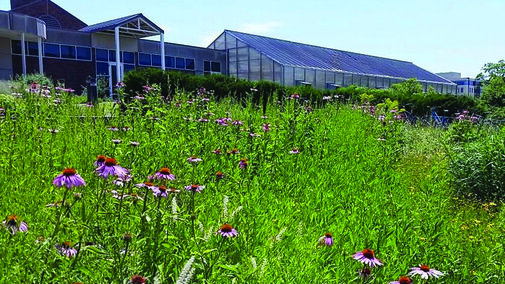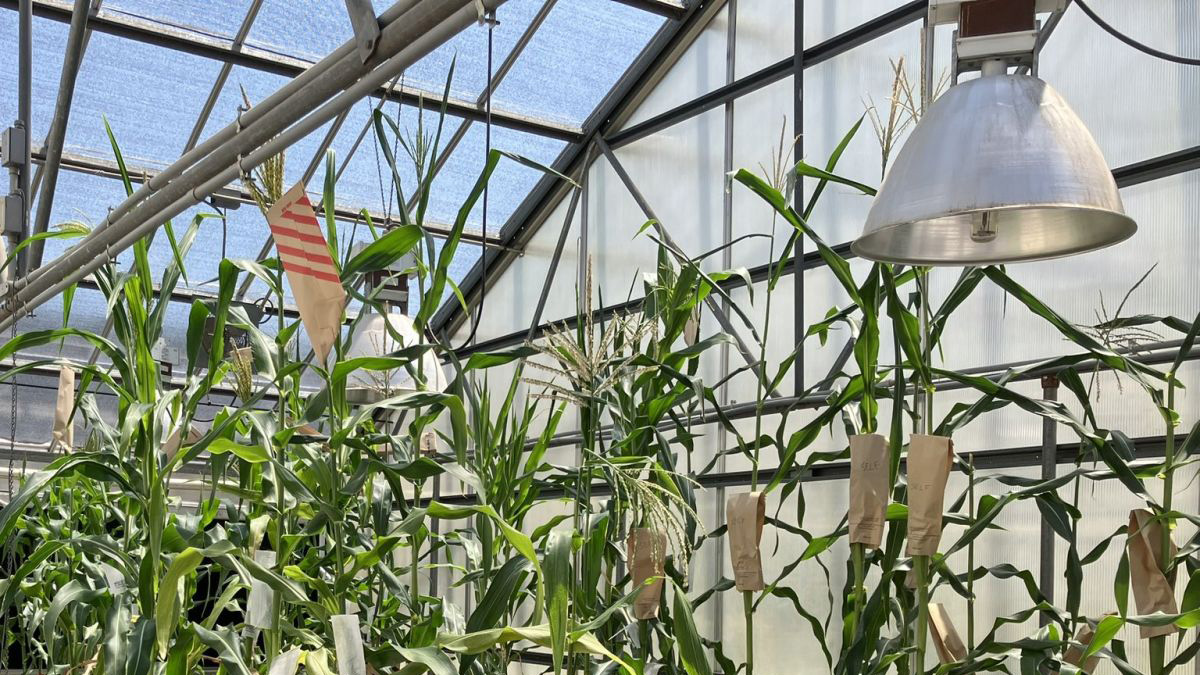Plant Transformation
Plant Transformation Core Research Facility
The Plant Transformation Core Research Facility has the capacity to conduct transformations for the major commodities, including maize, soybean, sorghum and wheat. Full-service transformations for the model plant species, Tobacco (Nicotiana tabacum and Nicotiana benthamiana) and Tomato (Solanum lycopersicum) are available upon request. All transformations are conducted using Agrobacterium-mediated protocols.
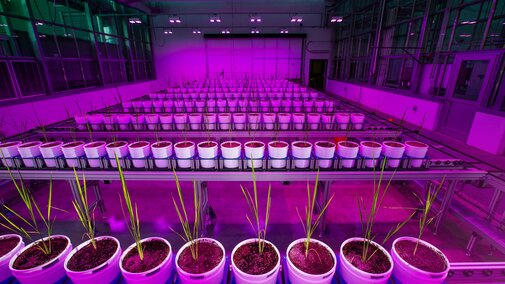
Center for Biotechnology
Nebraska Center for Biotechnology
The Nebraska Center for Biotechnology provides state of the art technologies for research through core facilities, enriches the research environment at Nebraska through a weekly seminar series, provides training to faculty, students and staff through workshops and short courses and awards student fellowships and scholarships. The center aims to provide services and training to enhance the research environment and research capabilities at the University of Nebraska and for local and regional businesses. Its core facilities include bioinformatics, flow cytometry, genomics, microscopy, plant transformation, and proteomics/metabolomics.
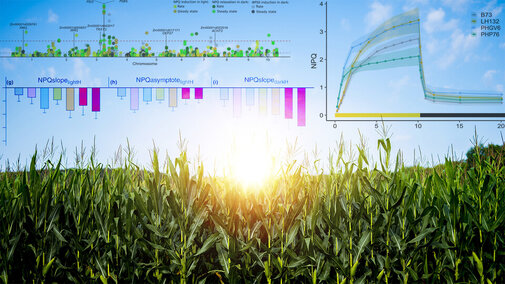
Nebraska Center for Biotechnology Facilities
Bioinformatics
- High-performance Linux computer cluster dedicated to life sciences research. In total, the compute cluster has approximately 350CPU cores, 1TB of RAM, and 400TB of central SAS RAID 6 zfs disk storage.
- Cluster nodes have at least 8GB of RAM available via the Slurm job scheduling system and are capable of running MPI jobs.
- Dedicated 4 CPU 6-core large memory server (320 GB RAM) suitable for larger transcriptome and genome assembly jobs.
- Web servers and database back-end machines hosting university database-driven research websites.
- Data transfer server with a direct fiber optic connection at 10GB/s to the Holland Computer Center.
Cryo-Electron Microscopy
- Thermo Scientific 200kV Glacios Cryo-Transmission Electron Microscope (cryo-TEM) allows you to easily collect near atomic data from a broad range of biological targets. The Glacios features a Falcon 4i Direct Electron Detector, a Selectrics Energy Filter, and the Thermo Scientific EPU Software.
- Vitrobot Mark IV is a fully computer-controlled double-sided Bloating Robot for the vitrification of aqueous samples. The process of plunging, blotting, and vitrification is fully automated upon placing a vial in the chamber and setting up the liquid coolant container. The Vitrobot allows you to control the temperature, humidity, number of blotting, and several critical time settings.
- Leica EM GP2 is a fully computer-controlled single-sided Bloating Vitirifcation Robot. This instrument allows the user to perform multiple bloating operations, including back and front bloat. The possibility of back bloating makes the EM GP2 a perfect tool for the vitrification of cells and microcrystals.
- PELCO easiGlow is designed for cleaning and hydrophilizing TEM carbon support films or grids, which tend to be hydrophobic. A glow discharge treatment with air will make a carbon film surface negatively charged (hydrophilic), which allows aqueous solutions to spread evenly.
Scanning and Transmission Electron Microscopy
- Hitachi HT-7800 TEM is an advanced electron microscope with a magnification range from 50x to 600,000x for a) ultrastructural analysis on ultrathin sections of samples, b) assay of conductive particles, and c) examination of negative stained microbial particles (such as virus) and nanoparticles.
- Hitachi S4700 Field-Emission SEM is a powerful tool for topographic analysis at nano-scale levels, its magnification range from 20x to 500,000x allows a resolution of up to 1.0 nm.
- Preparation equipment. The facility can freeze samples, embed them, thick and thin section them, and coat them. It has protocols and expertise in all of these
Microscopy
- Nikon A1R-Ti2 confocal system
- Nikon Ti-2 Inverted Fluorescence Microscope
- Upright Fluorescence Microscope
- Stereo Fluorescence Microscope Nikon SMZ25 with DS-Ri2 Camera
- EVOS® FL Auto Cell Imaging System
Flow Cytometry
- Beckman Coulter CytoFLEX, 4 lasers – 16 colors – for standard cell profiling and multiplex analysis.
- NanoFCM NanoAnalyzer, 2 lasers – 2 colors – for size and concentration of nanoparticles.
- Beckman Coulter CytoFLEX SRT, 4 lasers – 15 colors – for biosafety contained cell sorting with multiplex profiling.
- Full-time core director with assisted analysis and individualized training available to all UNL.
Proteomics and Metabolomics
- With Thermo Q-Exactive – High Field (QE-HF) coupled to Thermo Vanquish H binary UPLC, researchers can identify and quantify proteins, uncover their modifications, and map intricate protein-protein interactions. These insights are crucial for understanding disease mechanisms, discovering biomarkers, and developing new therapeutics, making proteomics an exciting field in cutting-edge biomedical research.
- Sciex QTRAP 6500+ mass spectrometer with SelexION+ ion mobility coupled to Shimadzu Nexera II UHPLC allows scientists to analyze the complete set of small molecules (metabolites) in a biological system, providing a snapshot of cellular metabolism.
Single Cell Genomics
- 10x Genomics Chromium iX System
- Qubit technology, Invitrogen
- Bioanalyzer technology, Agilent
Plant Growth Facilities
Plant Growth Facilities
The Plant Growth Facilities Service Center at UNL provides quality greenhouses and growth chambers and professional support. With greenhouses on UNL East Campus, Innovation Campus, and at the Beadle Center on City Campus, students and researchers have access to some of the best technology in the country.
Field facilities include over 9,600 acres at the Agricultural Research and Development Center and other research sites on and around campus.
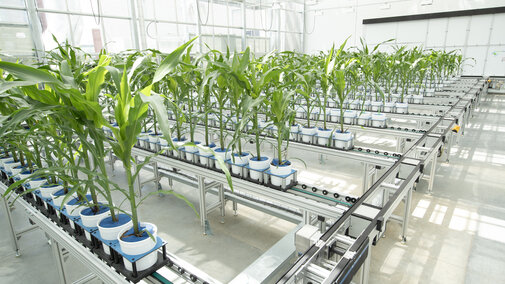
Beadle Business Center
Beadle Business Center
The Beadle Business Center is a unit within the Institute of Agriculture and Natural Resources. It provides principal financial and human resources support in grant and budget development and administration, financial management, payroll management, purchasing, and information technology support to students, faculty and staff.
